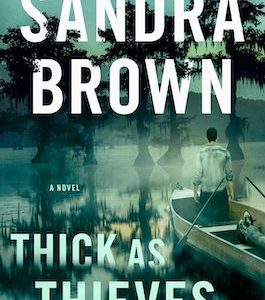“But you seem like such a happy person,” I’m told, with a puzzled shake of the head. “Why do you write about such dark subjects?”
Crime writers are often asked this sort of question. People are as intrigued by our back-jacket copy as they are by the author. Are we struggling through a scarred past, residual pain, or have a twisted fascination with torture and murder? Some readers and reviewers might even challenge us about sensationalizing violence.
With all the possible scenarios to write, why would we choose to spend our time imagining suffering and death? Because I don’t need a fairytale experience to raise my spirits and fill me with hope: I want to challenge the worst of humanity and survive.
Engrossing stories with hard-edged themes allow us to view the worst in humanity from the safety of the protagonist. No matter what hell and suffering their creator has unleashed, we know they will be strong enough to endure and overcome. We can be terrified and appalled. My heart can be ripped out and stomped on the ground because I know the anguish is leading me to an empowering or, at least, a satisfying conclusion. And although the characters—and I—will likely emerge from the story battered and scarred, I expect to come out on the other end wiser and stronger than when I began.
Thrillers allow us to vicariously experience harsh realities and relate them to our own personal struggles. I can draw courage and fortitude from the characters, make devastating mistakes, and bolster my own doubt with the successful outcome of their actions. By imagining ourselves as a character—whether from the position of the writer, reader, actor, or viewer—we can empower our own lives through imagined struggle and triumph.
And, as we all know, the bigger the challenge, the more empowering the achievement.
Also, through these stories we become more aware of the world and can inspire that search for awareness in others. Imagining, no matter how visceral, is not the same as living, but imagination allows us to walk in someone else’s shoes. When we immerse ourselves in a story, we’re able to seek, explore, and relate on a deeper level than when we watch news footage or read an article. That’s the power of fiction.
It’s not enough to digest facts, we need to empathize to truly understand and manifest change. The biggest issues of our time—equality, freedom, racism—are not one-and-done concepts we can grasp and move on from. They must be examined and revisited from all angles, most importantly within ourselves. My favorite characters are the ones struggling with their own morality. The squeaky-clean hero with iron confidence and infallible judgment is not nearly as interesting to me as a character who inspires self-examination.
For example, having biracial characters—Steph Cha’s Grace Park, John Vercher’s Bobby Saraceno, or my own Lily Wong—examine their own thoughts and actions concerning racial prejudice makes it easier to check for bias hiding in us.
Likewise, if the character is a warrior, I want them to question their detached efficiency and enjoyment of violence because violence leaves a mark on the people who commit it as well as on those who suffer it. Even a sociopath character like Villanelle from Killing Eve becomes more engaging when she’s faced with her own emotional confusion and need. In those rare moments, we find common ground on which we can relate to an otherwise untenable character.
There’s something about watching, reading, or writing badass characters cope with their own vulnerability that gives us permission to acknowledge our own. If S.A. Cosby’s conflicted hero-criminal can cry in Blacktop Wasteland, why can’t we?
Of course, to fully explore the human condition, comedy is equally important and should not be overlooked. Gallows humor helps us through the darkest times, whether we’re challenged by relationships, illness, economics, or tragedy. When we laugh, the endorphins we release reduce our pain, boost our pleasure, and lift our spirits. It’s not only warriors in combat who benefit from laughing in the face of hardship. So, when we read or write about characters who stay positive and strong through humor, it reminds us that we can do the same for ourselves.
The more serious the topic, the more I crave comedic relief. In the ninja arts, we remind ourselves that the scenarios we were imagining and the self-defense actions we were practicing are so serious that we shouldn’t take ourselves too seriously. I think this wisdom also applies to writing and, on a grander scale, to life. Humor helps us acknowledge and accept our fallibility without judgment. When we stand behind the flawed protagonist or the conflicted hero, we stand behind ourselves.
Why do I write about such dark topics?
Because the truth needs to be seen in order to be conquered.
Although The Ninja’s Blade dives into the tragedy of commercial sexual exploitation of youth, it’s actually a story about the triumph of introspection and empathy. Lily Wong is my avatar for justice and heroism. She’s my vehicle for examining the dark realities of today’s society in a way that empowers my spirit and motivates me into action.
Why do I write about such dark topics?
I delve into darkness, so I can live in the light.
*





















